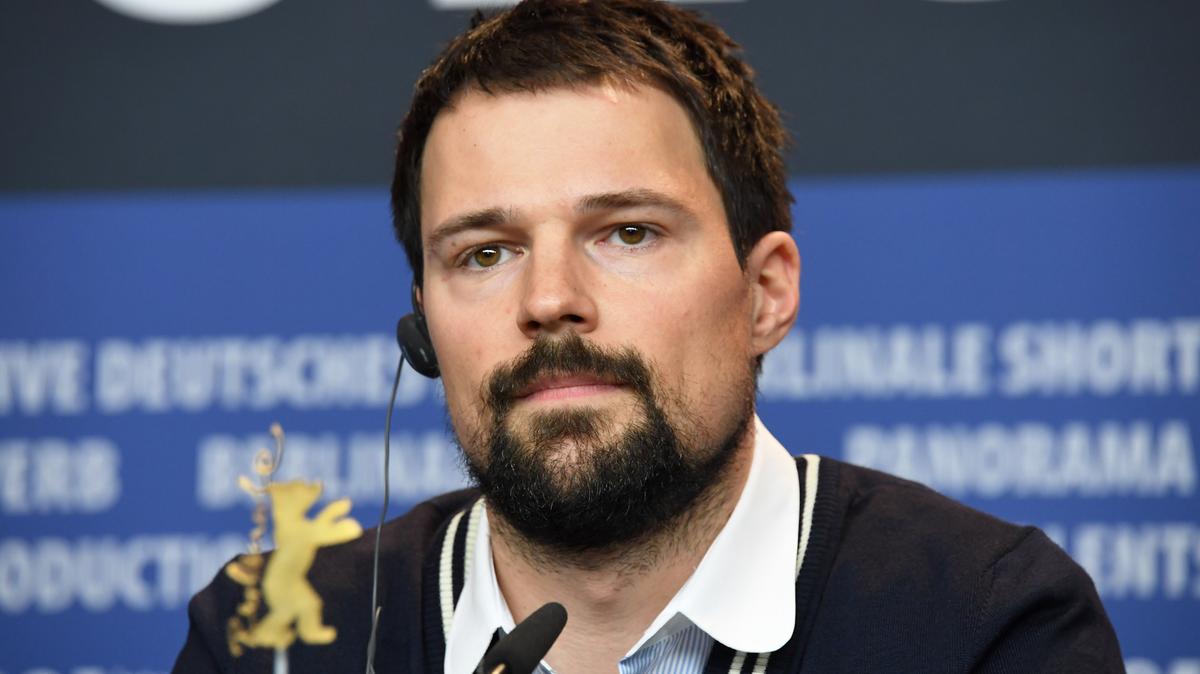“Fear and shame… reach an agreement! Stop it now! NO TO WAR” — this is what Danila Kozlovsky, Russian actor, director, producer, and screenwriter, wrote as a caption under his Instagram post of a black square on 24 February 2022. He was 36 at the time.
Unlike some of his colleagues (and much more senior ones) who also wrote “no to war” underneath black squares the same day but later took it down, Kozlovsky did not remove anything. Even though the very word “war” was already banned in Russia. Even though he chose to stay in Russia.
On the contrary, three days later he posted photos of Ukrainians hiding in bomb shelters, adding that what was happening was a “catastrophe” and that “people, soldiers, and civilians are dying, and nothing can justify this”. Kozlovsky then personally appealed to President Vladimir Putin, asking him to stop the war. “My name is Danila Kozlovsky and I am against the war. I speak solely on my behalf and from all of my heart,” he stressed.
The appeal fell on deaf ears. Kozlovsky did not write, publish, or say anything after that. A year passed that saw the country change beyond recognition and artists split into two categories: those who are with the Kremlin or traitors, and during this year successful director and actor Danila Kozlovsky faced a police report, alleging that he “discredited” the Russian army. Danila then broke his silence to try and explain that patriotism is not about supporting each and every decision made by those in power. Nevertheless, the bullying only intensified, and not just of him: the theatre of his teacher Lev Dodin, where Kozlovsky acts in several plays, was visited by Russia’s consumer rights watchdog…
Before the war broke out, Kozlovsky did not seem like a person who can risk his position over personal beliefs. But the invasion changed everything. Novaya Gazeta Europe presents the portrait of a person who was expected to say “it’s not that straightforward” but he actually declared that he opposed the war and did not walk back on it.
Kozlovsky and his astounding career
Danila Kozlovsky was born on 3 May 1985 in Moscow to a family of artists. His father, Valery Kozlovsky, PhD in philosophy, has been teaching for a long time at the Moscow State Art and Cultural University where he created an advertising department in the mid-1990s, the first of its kind at the time. Danila’s mother, Nadezhda Zvenigorodskaya, is an actress who sometimes appears in ads and gets small roles in films.
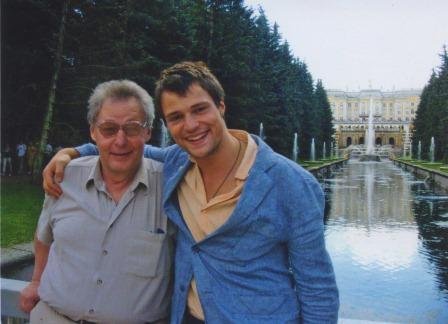
Danila Kozlovsky with father Valery. Photo: Danila Kozlovky
Danila has two brothers but showed the most interest in acting early on. Despite this, he studied at Kronstadt Sea Cadet Corps from the age of 11 to 17. Nevertheless, Kozlovsky was already making first tentative steps in the world of cinema then.
In 1999, he was invited to play in Simple Truth, a TV series about school life. This role did not bring much success and popularity but they say that it gave Kozlovsky certainty about his future career. After graduating from the cadet corps, he got into a St. Petersburg theatre school, to study a course led by Lev Dodin.
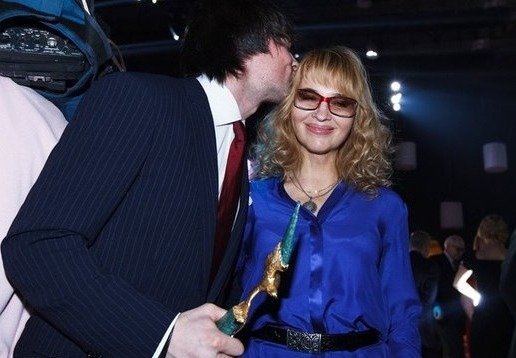
Danila Kozlovsky with his mother Nadezhda Zvenigorodskaya. Photo: Danila Kozlovky
Since the mid-2000s, Danila’s career was progressing at a dizzying pace. He bagged one lead role after the other. In 2013, he had the opportunity to play Valery Kharlamov, a Soviet ice hockey legend, in the Legend No. 17 biopic. A year later, he debuted in Hollywood: Kozlovsky appeared in Vampire Academy. However, working in Russia was still his main source of success.
Danila attained the status of a star and fashionable intellectual, while fashion gossip magazines were focused squarely on him. There he was, featuring in a Chanel ad with Keira Knightley herself. Then, he’d move to the renowned Bolshoi Theatre stage to fulfil his long-held dream: singing 1930-1950 US jazz classics by Frank Sinatra, Tony Bennett, Dean Martin, Nat King Cole accompanied by an orchestra.
He was invited to join trustee boards of charities: Kozlovsky became an ambassador for an autism foundation and later a member of a board for a charity that provides care for children with epidermolysis bullosa, a rare genetic condition. Children with this disease are often called “butterflies”, comparing their fragile blistering skin with butterfly wings. Danila would use his social media platform to speak about their issues.
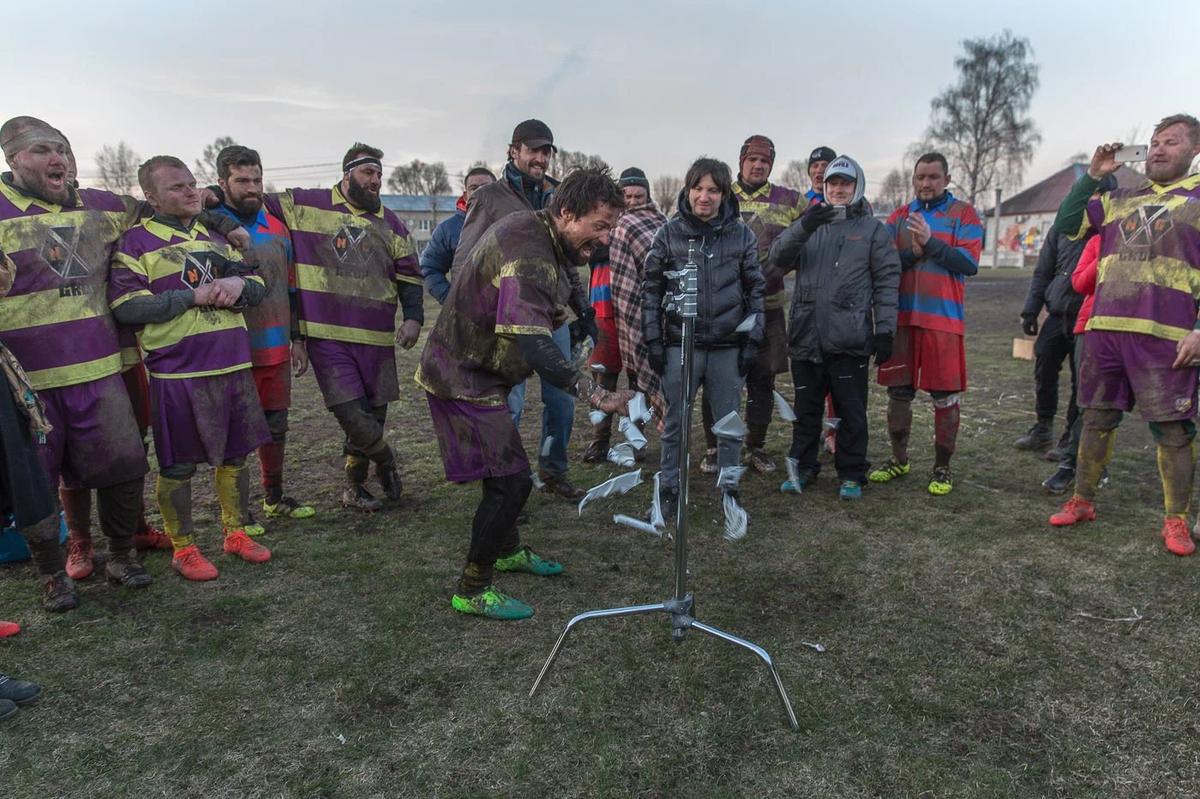
On the movie set for Coach. Photo: Kinopoisk
Kozlovsky later began producing films that he was acting in.
In 2018, he was announced as the official ambassador for the 2018 FIFA World Cup in Russia. In anticipation of the event, Kozlovsky shot and produced Coach, a sports drama. The film naturally obtained state funding (Kozlovsky would later get backlash for it). Danila once again played the lead role in Coach: former national football team striker Yuri Stoleshnikov who takes on a provincial team as their coach. His co-star in the film was Olga Zueva, who later became the mother of his daughter, Oda Valentina, in real life. Right now, Olga and Oda Valentina live in the USA.
Chernobyl (Russian production) was one of his last cinema projects. However, despite the film’s decent cinematography and directing, it was met with mixed reactions from critics. Many pointed to the fact that Chernobyl copied the series with the same name shot earlier by HBO and Sky. The movie was shot a year after the US take on the Chernobyl disaster came out, and Kozlovsky once again secured state finances to complete it.
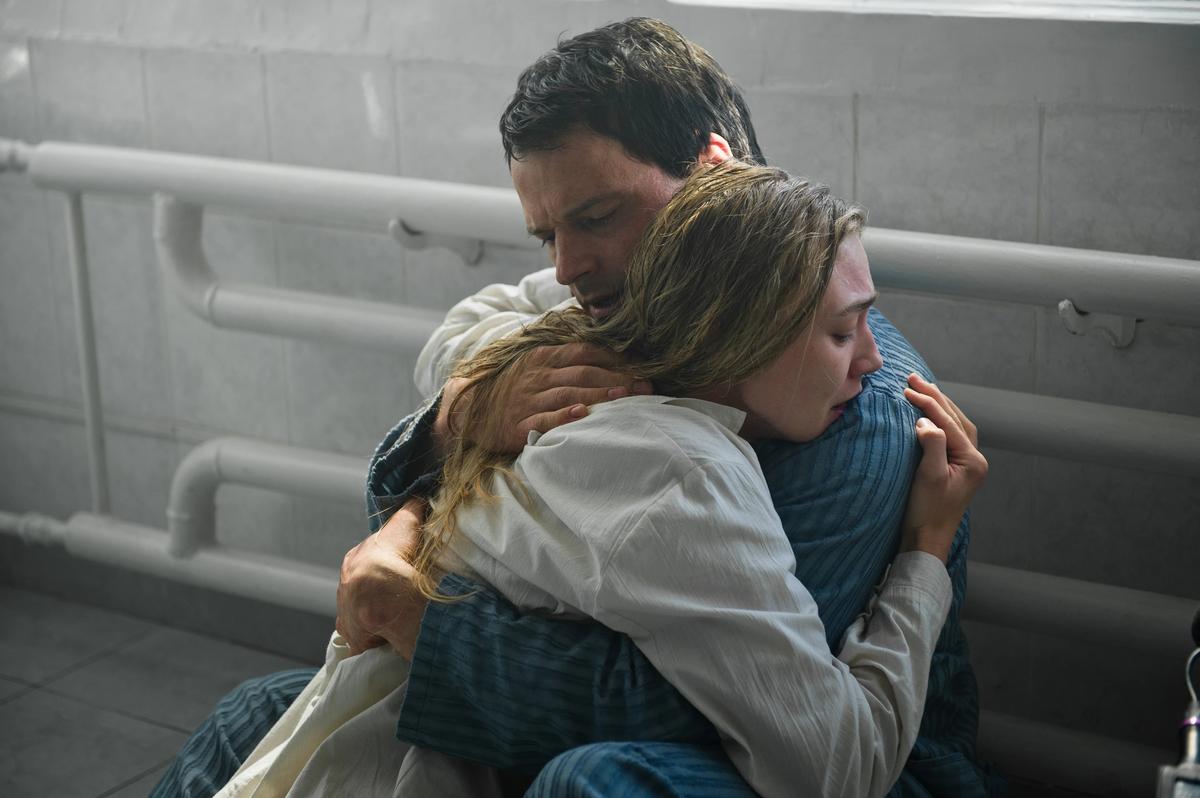
Danila Kozlovsky and Oxana Akinshina. Photo: Kinopoisk
This movie was remembered for two reasons: gossip about the film director’s relationship with actress Oxana Akinshina, who played one of the lead roles, and its soundtrack recorded by Alla Pugacheva, a legend of the Soviet and Russian pop stage. It is not a coincidence that Pugacheva is featured in the Russian version of Chernobyl: the singer bravely performed an open-air concert for 9,000 people involved in the Chernobyl disaster cleanup operation in September 1986, just five months after the worst-ever nuclear civil incident. The concert took place near Pripyat, several kilometres away from the reactor that was still not covered by the sarcophagus. Being in the high-radiation zone later affected her health and voice.
Support independent journalism
Kozlovsky and his public stance
Russia’s full-scale invasion of Ukraine (both Kozlovsky and Pugacheva will later be designated as “traitors” over their opposition to the war) is still a year away. In April 2021, Danila sat down for an interview with journalist Irina Shikhman. When asked whether artists should speak up about their political stance and beliefs, he said:
“Ideally, I think that actors should not be doing that. They should not urge people to support or oppose anything. However, we then find ourselves in a specific context, specific world, political situation and time where something changes. Should I have spoken up about the Belarus events (protests in Belarus that started after Alyaksandar Lukashenka was declared the winner of the 2020 presidential election. Most protesters were battered, arrested, or tortured — editor’s note)? Probably not. But when I saw what was happening there, all these atrocities and crimes against people, I spoke from my heart about it. When I spoke about Khodorkovsky (Mikhail Khodorkovsky is an exiled Russian businessman who was thrown in jail for 10 years on charges of economic crimes after a meeting with Putin where he raised the issue of national corruption, now declared a “foreign agent” by the Kremlin — editor’s note) long ago, ten years ago, I did it sincerely. He was a hero to me who was wrongfully imprisoned. Should I have said it? Did it have any meaning? I don’t know. I am outraged that they create some sort of vacuum where you are left with no choice. You should either take up one position or the other.”
“How can, for lack of a better word, the liberal part of society preach freedom when many of their representatives often leave [their opponents] no right [to choose]…”
“When someone says, ‘You know, I support the current authority, I back Putin’, they will be destroyed and steamrolled.”
When asked if he’d vote for Putin at the next election, Kozlovsky said no: “I oppose the idea that the same people stay in power without any challenges. This is not even about Putin. I just don’t believe that you can successfully lead a country for 30 years. And I will use a quote by Putin himself here when back in the beginning of his time in the office he responded very negatively to the question if he’d run for president again. And in this sense, I support that Putin who stood against this. Any longevity in power is a synonym for stagnation.”
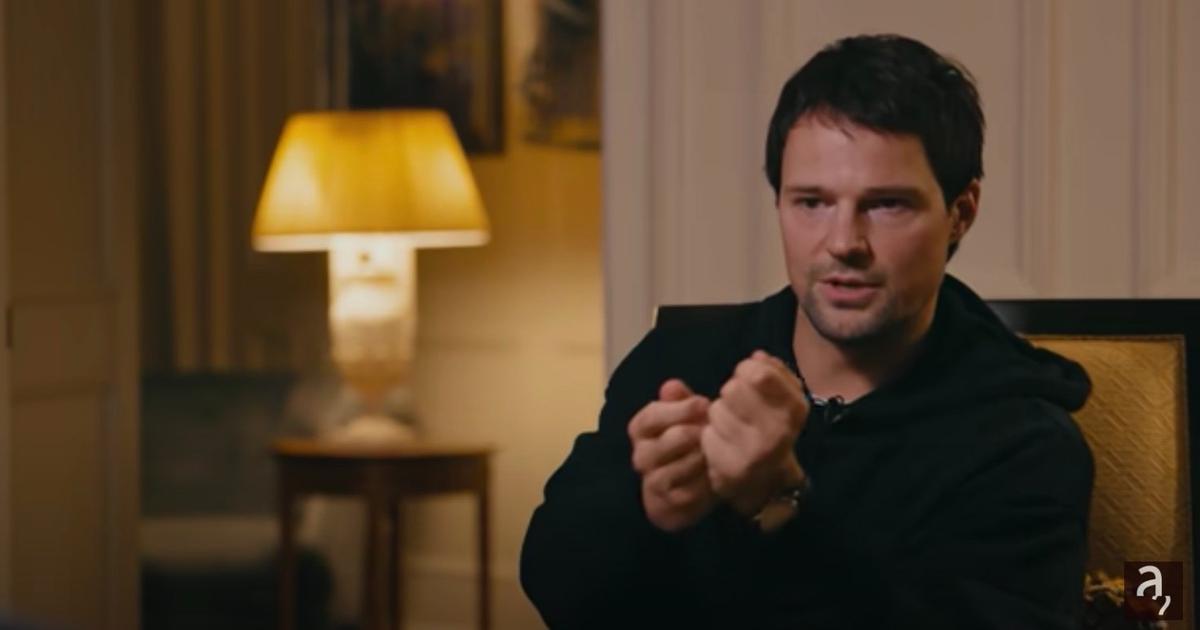
Danila Kozlovsky’s interview with Irina Shikhman. Photo: video screenshot
Kozlovsky and the Ukraine war
“What is happening now is a catastrophe. In all senses: human, humanistic, political, economic. Any kind, really. I love my country. With all my heart. I have always thought that true patriotism is the resolve to speak the truth about what you truly feel. To my greatest personal frustration, I have not always exhibited this quality. But this is the time when you need to speak up. This is a point of no return that we are literally passing on the back of tanks. I am not writing this for hype or, God forbid, in pursuit of a greater blaze of aggression but because I am truly hurt.”
“They are now asking the proverbial question ‘where have you been all these eight years?’. I want to immediately ask ‘Well, where have you been yourself?’ but it’s rude to meet a question with a question.”
“So, I’ll answer in a different way. I don’t know… I didn’t see, didn’t understand, or didn’t want to see and understand… was apathetic, was exclusively interested in my own life at a time when it was necessary to call for peace and to be reasonable through every means possible. I naively believed that it would end and those at the top would definitely come to an agreement. Because they are smart people there. They wouldn’t let a war break out. But they did. It’s scary. It’s painful.”
This is what he wrote on his Instagram page on 24 February 2022.
Kozlovsky’s anti-war stance wouldn’t come to bite him for some time. His name first showed up in a “traitors and enemies” blacklist in the summer of 2022 which was possibly spread online by an entity called Committee for the Protection of National Interests. According to the description, those who oppose “the prosperity and security of our Motherland” were declared “enemies and traitors”: “They are traitors who we will never forget or forgive. We will make every effort to have them answer for their wrongdoings <…>. It was all happening with the support and connivance of the Ukrainian regime and its Western curators who essentially have been turning a blind eye to the crimes committed. We are certain that they will face a just trial.”
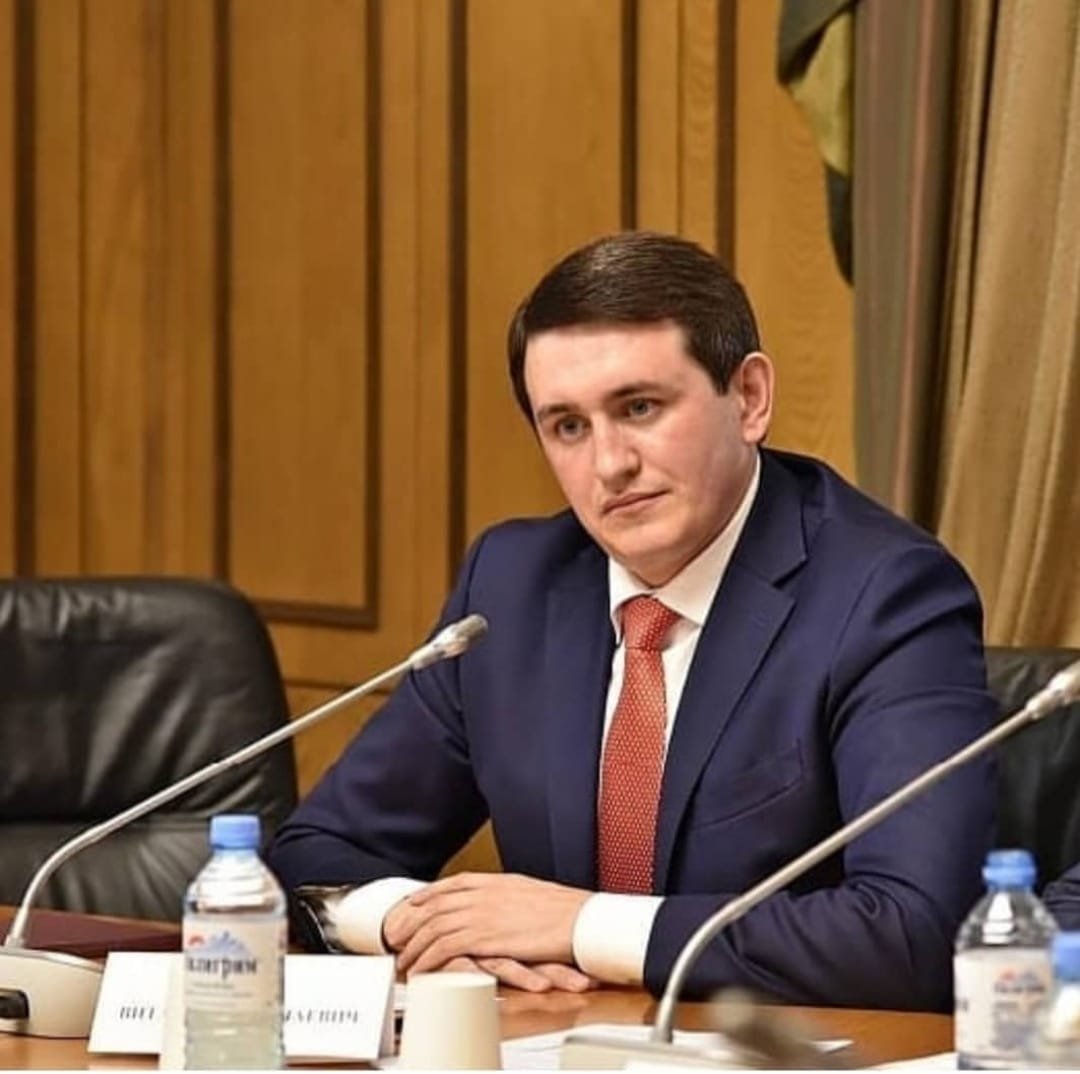
Vitaly Borodin. Photo: Facebook
In addition to Kozlovsky, the list includes actresses Chulpan Khamatova, Kseniya Rappoport, singer Vera Brezhneva, musician Andrey Makarevich, writers Dmitry Bykov and Dmitry Glukhovsky, journalists Dmitry Muratov and Natalia Sindeyeva, and many others.
More than a year after the full-scale invasion was launched and when the notorious Soviet-era police report culture started rearing its ugly head again in Russia — including reports against artists — Kozlovsky faced one himself for that very February 2022 Instagram post. It was written by Vitaly Borodin, a man who is infamous for writing these pieces. He describes himself as the head of the Federal Security and Anti-Corruption Project (essentially, an imitation of Alexey Navalny’s Anti-Corruption Foundation).
Borodin managed to produce quite a few reports, including the one against Alla Pugacheva. His main complaint? “They earned money in the country” that gave them everything and now “they are slagging it off”.
In his report against Kozlovsky, Borodin alleged that the actor back in the day moved from Russia to the US but “lost his funds there”
and “decided to return to Russia like many other actors and artists who condemn the special military operation to earn more cash”.
Borodin cited the Instagram post as evidence on top of the Irina Shikhman interview where the actor allegedly “urged citizens to come out in protest”.
The police report was quickly backed by Russia’s ultra-patriotic bloggers.
Kozlovsky responded by publishing an open letter, noting that he never moved, does not have another citizenship, that he lives and works in Russia and only travels to the US to see his daughter.
“All these actions are covered up by ‘patriotism’,” Kozlovsky wrote. “Writing police reports, grassing on people, starting witch hunts, practising hatred in Telegram channels and other media outlets have nothing to do with patriotism. This is a frenzy that will not make anyone’s lives better. Look for patriotism in other things: in creating, helping, in being merciful and honest even if it’s not always pleasant and very difficult. But this is the only way to make our lives better. Or at least try to.”
“It was always vital for me to try to do what I do well, this was my destiny and service. My teachers, my theatre, and, most importantly, my audience to whom I am grateful for the support and love are here, in Russia. It’s important for me to try and do something good, something kind, however naive it may sound now. I don’t want to throw in the towel, I am not going to surrender and will continue working in my country as long as it’s possible. The most crucial thing in difficult times is to stay human.”
The actor tried to sue Borodin for defamation. Russia’s state-affiliated news agency TASS soon reported that the Moscow prosecutor general’s office would launch a probe into possible “discreditation” of the Russian army by Kozlovsky. The court eventually dismissed his lawsuit vs. Borodin, citing the fact that he “failed to provide” comprehensive details about the defendant.
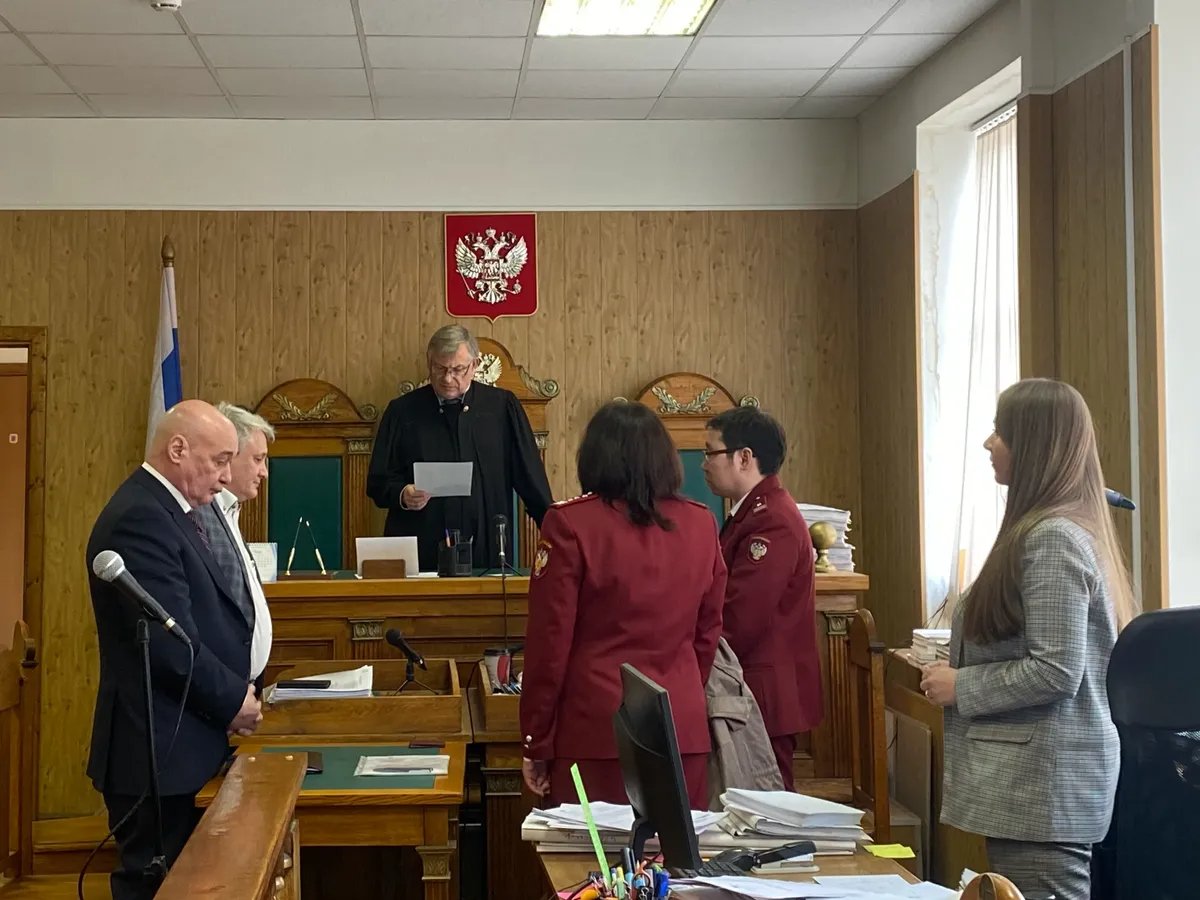
A court hearing on St. Petersburg’s Europe Theatre case. Photo: Ekaterina Barkalova, exclusively for Novaya Gazeta Europe
Soon after that, theatre plays in St. Petersburg’s Europe Theatre, where Kozlovsky was a permanent fixture for several years, were rescheduled. In early May, the theatre itself was shut down after Russia’s consumer rights watchdog allegedly discovered “multiple violations of sanitary and epidemiological rules”. The inspection was also prompted by a police report filed by an unnamed citizen.
The theatre was fined 15,000 rubles (€177) and then allowed to reopen. However, Kozlovsky’s plays did not make a comeback. The actor himself announced that he would take a sabbatical “for personal reasons” until the end of 2023.
“Don’t believe in lies. I did not flee anywhere. I live and work in Russia. At the risk of sounding grandiose — this is my motherland and my soil which I love a lot. Take care of yourselves. Hoping for peace for all of us soon,” he said in a video address recorded in the centre of St. Petersburg.
Danila Kozlovsky is 38 now. His films are no longer shown in Russian cinemas or on Russian television like they used to. He remains in Russia. He is one of the very few actors and artists in general who stayed in Russia but refused to conform to the official party line in the past year.
Join us in rebuilding Novaya Gazeta Europe
The Russian government has banned independent media. We were forced to leave our country in order to keep doing our job, telling our readers about what is going on Russia, Ukraine and Europe.
We will continue fighting against warfare and dictatorship. We believe that freedom of speech is the most efficient antidote against tyranny. Support us financially to help us fight for peace and freedom.
By clicking the Support button, you agree to the processing of your personal data.
To cancel a regular donation, please write to [email protected]
